Problem-Solving Skills Normal Reading Comprehension Worksheets for Ages 3-9
10 filtered results
-
From - To
Unlock your child's potential with our engaging Problem-Solving Skills Normal Reading Comprehension Worksheets, designed specifically for ages 3-9. These worksheets promote critical thinking and enhance comprehension abilities through fun and age-appropriate reading passages. Kids will explore various scenarios that inspire them to analyze information, make connections, and draw conclusions. Each worksheet is crafted to stimulate curiosity and foster a love for learning. Perfect for the classroom or at-home practice, our resources support early literacy development while encouraging children to tackle challenges confidently. Dive into our collection today and empower young minds to become skilled problem solvers!
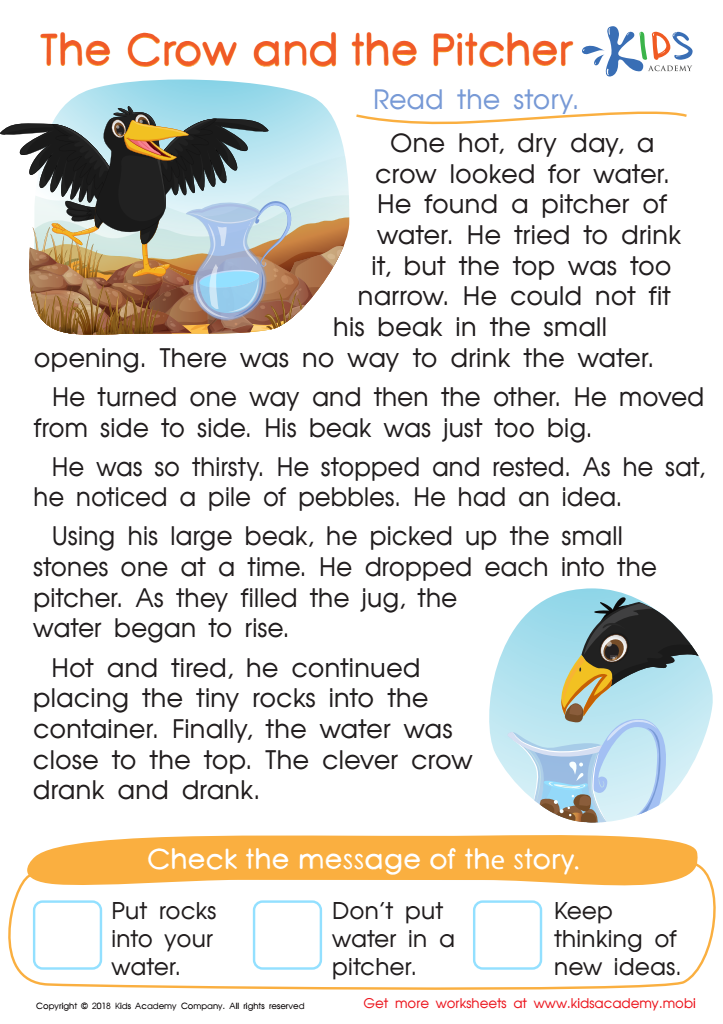

The Crow and the Pitcher Worksheet
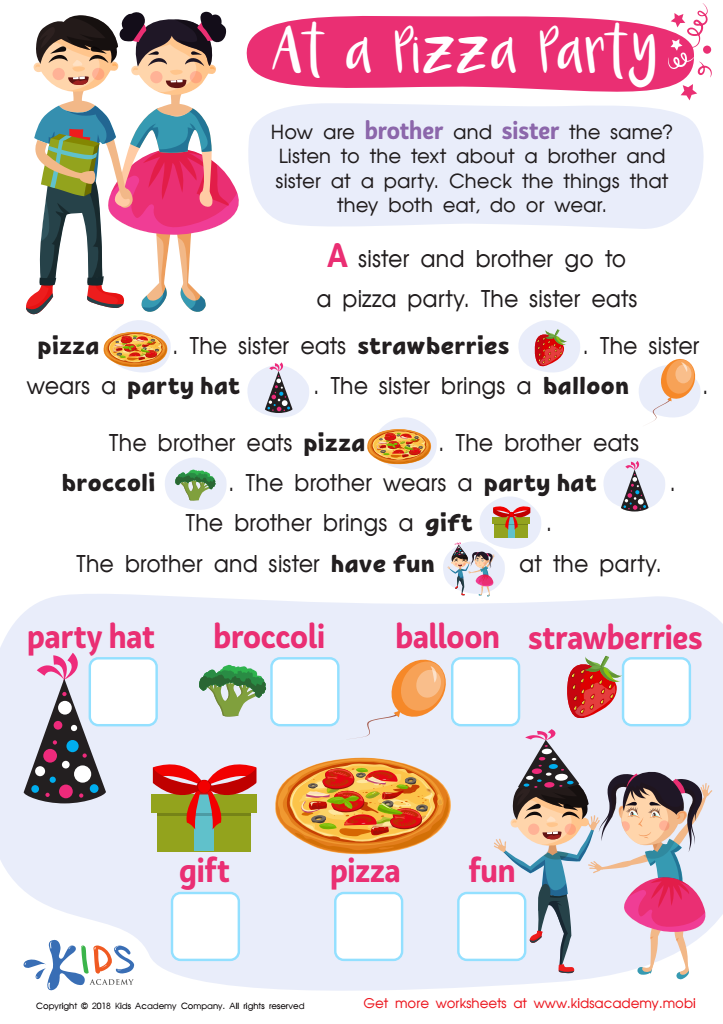

At a Pizza Party Worksheet
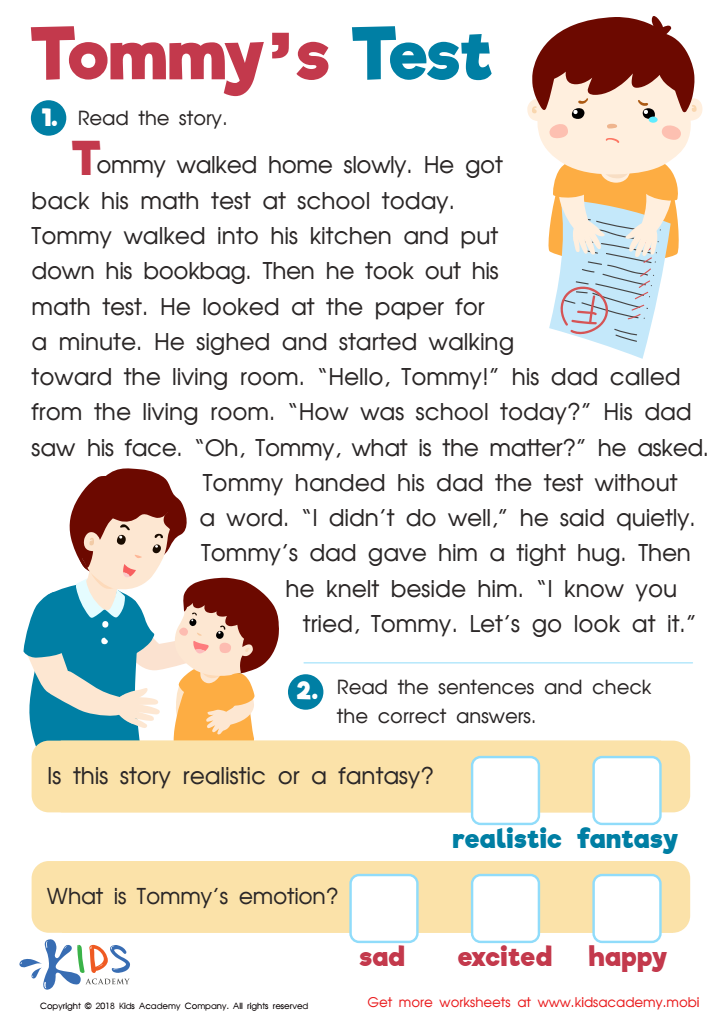

Tommys Test Worksheet
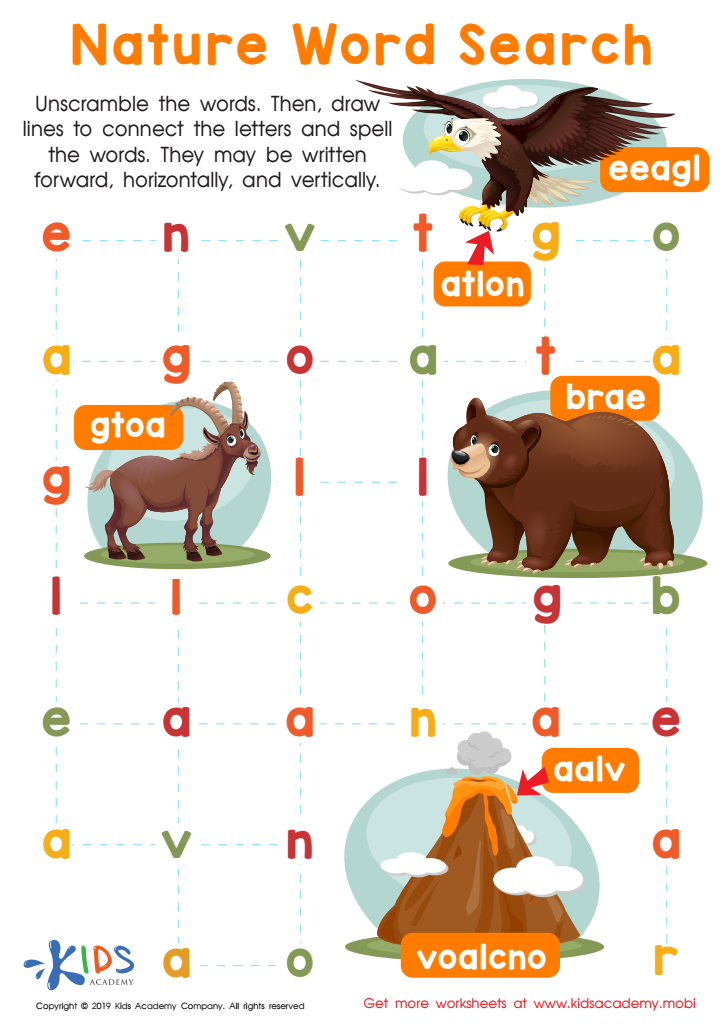

Nature Word Search Worksheet
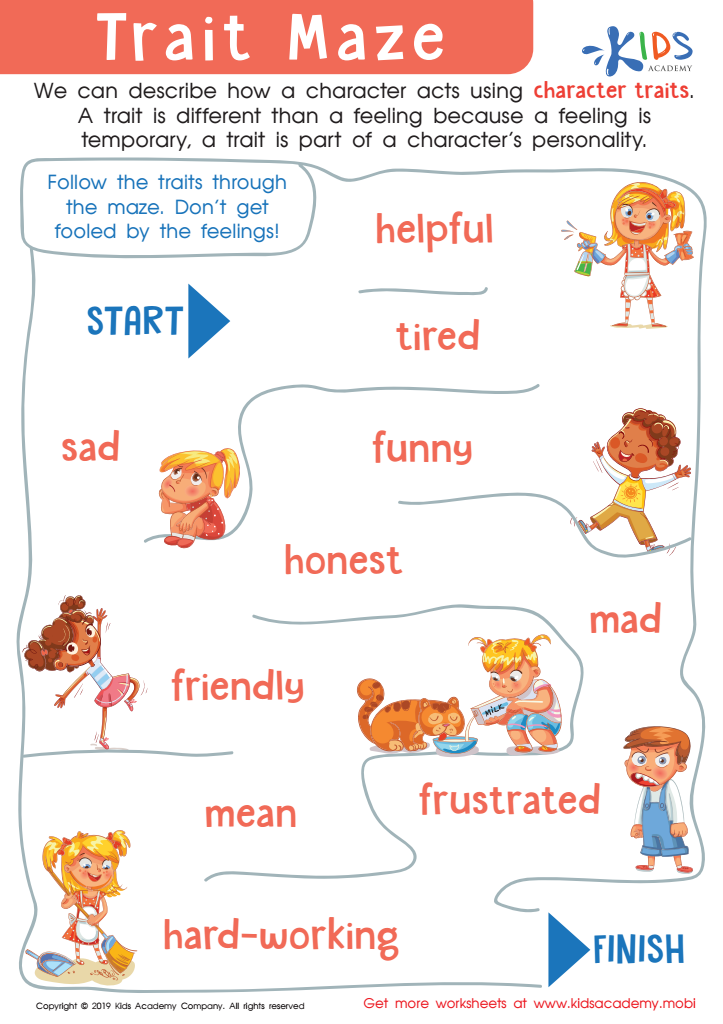

Trait Maze Worksheet
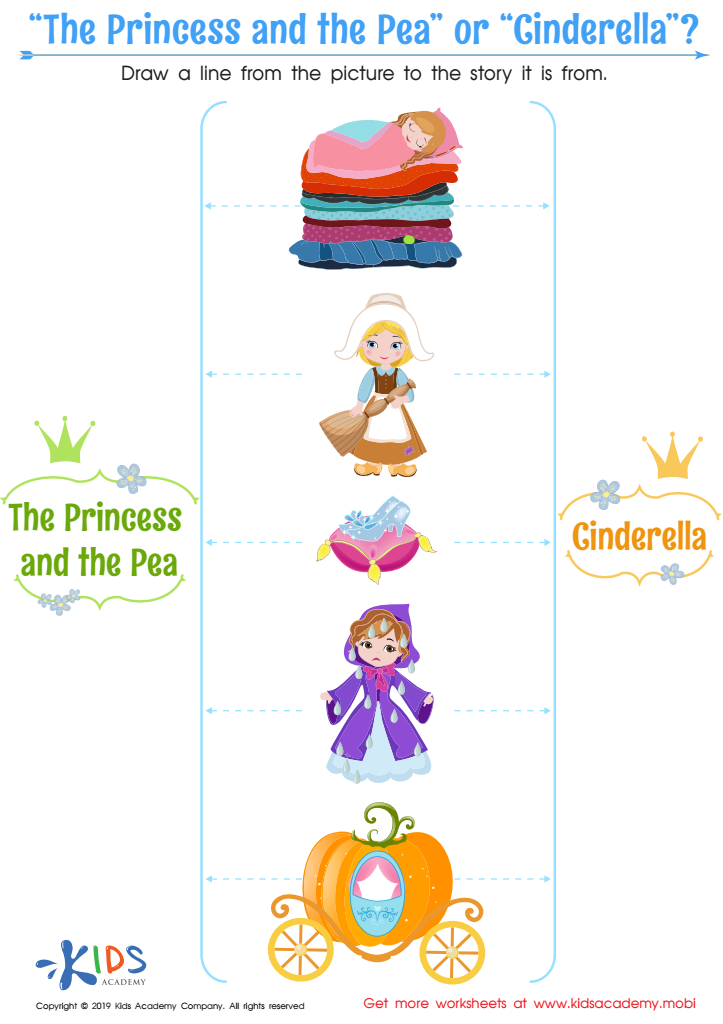

“The Princess and the Pea” or “Cinderella” Worksheet


Towns Worksheet
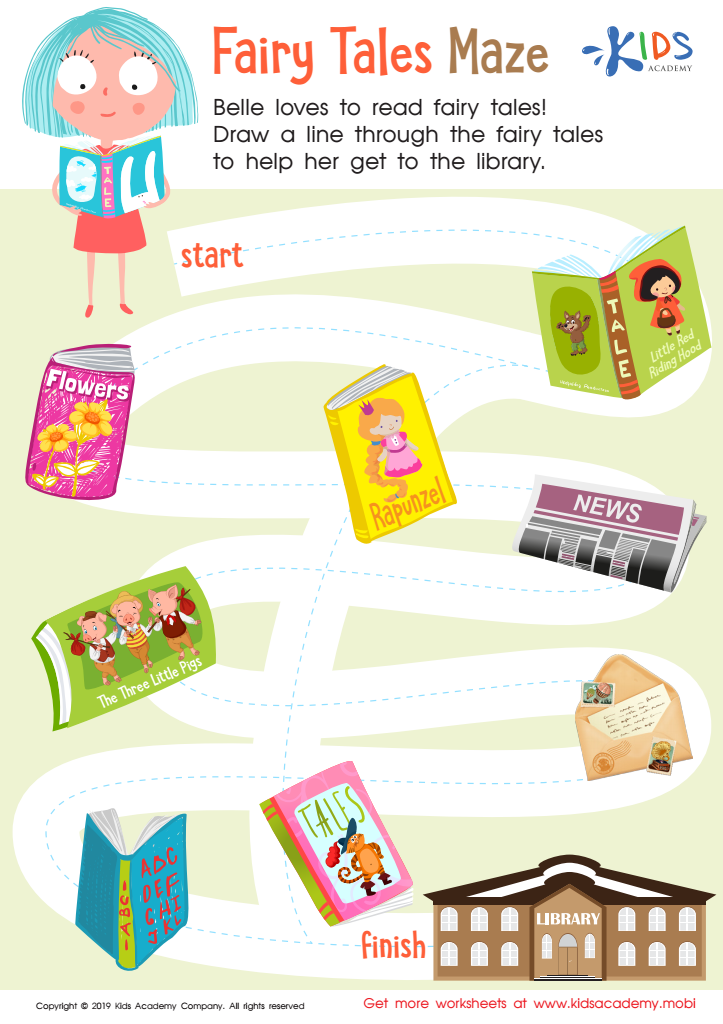

Fairy Tales Maze Worksheet
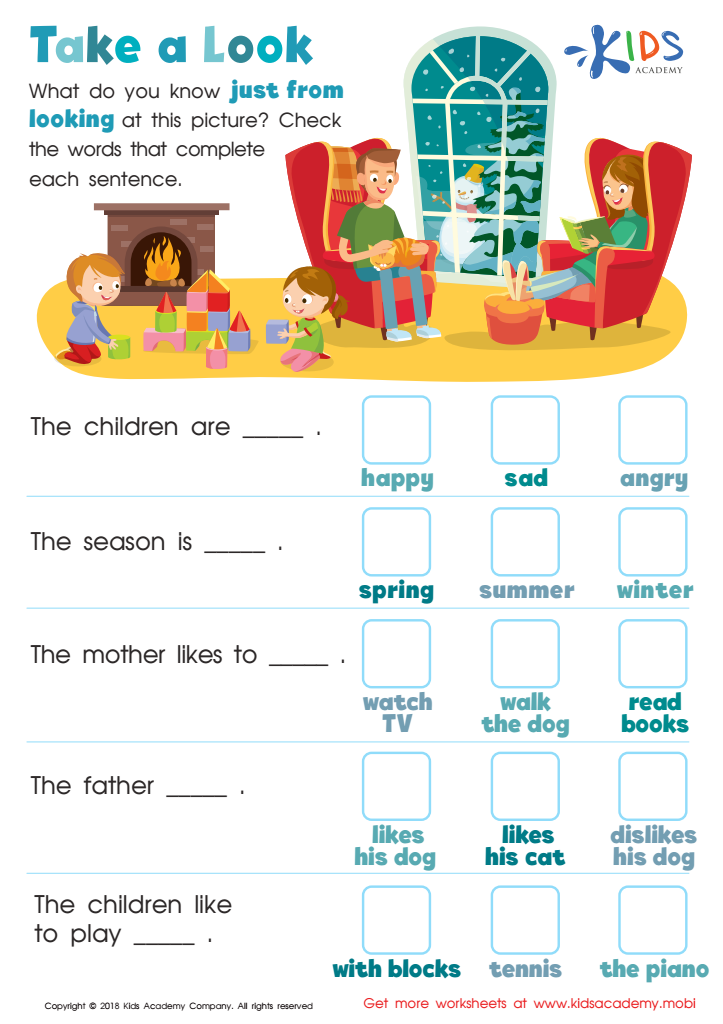

Take a Look - Part 1 Worksheet
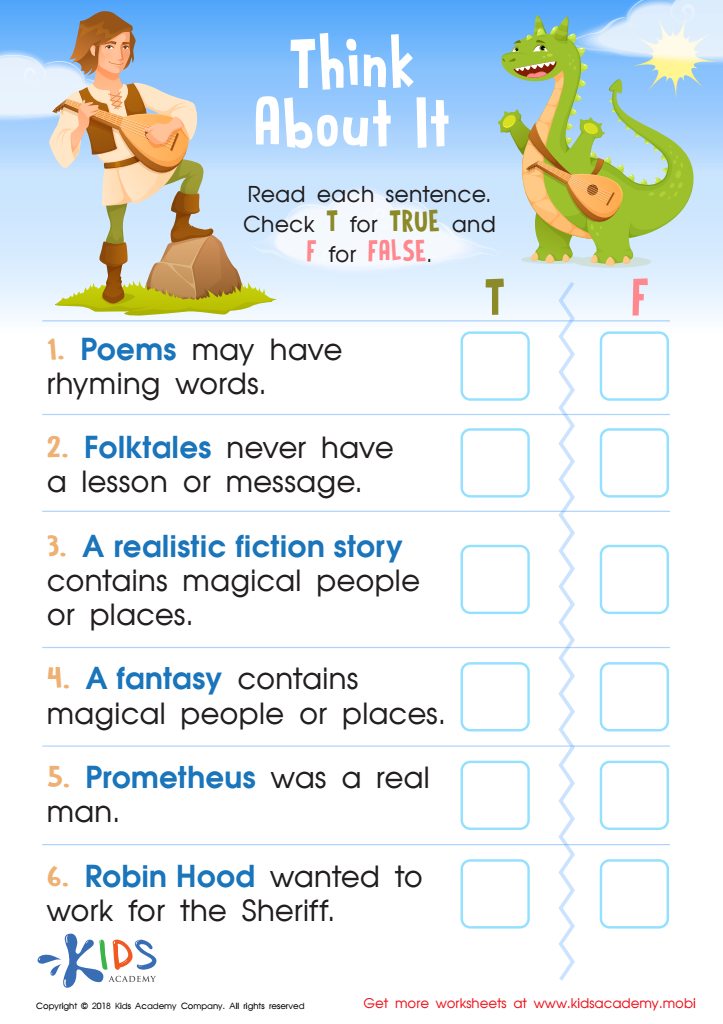

Think About It: Assessment Worksheet
Parents and teachers should prioritize developing problem-solving skills alongside reading comprehension in children aged 3-9, as these foundational competencies play a critical role in overall cognitive development. Problem-solving skills help children navigate challenges in both academic and everyday contexts, enabling them to think critically, reason through situations, and develop resilience. When children face obstacles in stories or discussions, they learn to analyze situations, hypothesize outcomes, and explore different solutions, fostering a proactive mindset.
Normal reading comprehension, meanwhile, provides essential context and understanding from texts, enhancing a child's ability to engage with and interpret information. As children comprehend stories, they encounter various scenarios that present moral dilemmas, conflicts, and decisions that require problem-solving. By linking comprehension and problem-solving, parents and teachers facilitate deeper cognitive connections, encouraging children to reflect on characters' actions and motivations and relate them to their own experiences.
Cultivating these skills early promotes independent learning and nurtures curiosity, preparing children not just for academic success, but for future challenges in life. Ultimately, investing in problem-solving and reading comprehension will help build confident, resourceful, and resilient individuals who are able to tackle complex problems in an ever-changing world.
 Assign to My Students
Assign to My Students




.jpg)










